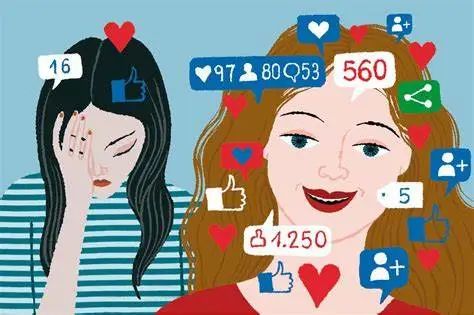As long as you live better than me, I can’t be happy at all 丨 Fortunately
Author:Jingshi Psychological Universi Time:2022.09.13
Author | Heart is a lonely hunter
I believe everyone has some time in life-
Maybe it is because others can't grab the concert tickets that are thoughtful, and we happen to have a special ticket with a particularly good location;
It may be that when taking the subway, others did not go on time to set off on time, and we happened to sit on the subway;

(Picture source network, invading deletion)
It may also be that the first cup of milk tea duang in the fall of others in the autumn contact the ground intimately, but our milk tea tightly shook hands.
What is gloating?
Literal understanding, the disaster is happy when others are unfortunate [1]. According to the definition of the "Modern Chinese Dictionary", gloating and disasters refer to that others are happy when they encounter disasters [2].
Unfortunately, disasters, or doom. When others encounter these, we may have a feeling of happiness or happiness. This is gloating. This feeling can be described by a paragraph:
Question: Where can I not worry about acne growing?
Answer: Of course, it is growing on someone else's face!

(Picture source network, invading deletion)
Fortunately, disaster is a dark "bottom" emotion
// How to understand the darkness of the glory?
Enjoy dark happiness.
There is a significant difference between "Seeing" witnessing "Seeing" and "Making" [2].
Nietzsche believes that it is also happy. Through direct competition, others suffer doom (Making) are different from sitting on the side to see others, and the latter enjoyment is darker and "illegal".
In other words, the disaster can be divided into two types: one is because of our disaster due to our sake, and we are gloating in this case; the other is that we are not the direct cause of the unfortunateness of others, but we are for others. Disaster will also feel gloated [1-3].
These two types of glory are like the first glass of milk tea that others dropped in the fall of the autumn, because we accidentally knocked down milk tea, or did he accidentally slip it?
The feeling of secret poking is "the most likely."
In the research of group glory and disaster, it was found that the glory was different from the pride and complacent of the pride and prejudice containing mild maliciousness and prejudice, but also different from the direct malicious anger and competition. The feeling of this secret stamp was particularly dark.
The dark side that cannot be predicted.
To what extent the glory of the glory can reach, it is not conclusive. In some studies, people think that only the negative incidents of medium intensity can cause glory; other studies have found that if there is previous disgust as a prerequisite, serious life incidents can also cause glory.
Therefore, the glory of glory may be far beyond our existing imagination [2].

(Picture source network, invading deletion)
// How to understand that the disaster is a "bottom" emotion?
The word "bottom" properly describes the deepest essence of glory, and its significance can be understood from three perspectives: low -level, implicit, and universality [2].
Regarding the "low level", psychologists in the Western sinensis and speculative periods mentioned that they were gloating, and they all tried to judge them at the high point of morality. Plato claims it is unfair and evil, and it is recommended that people surpass it as much as possible; Schopenhauer said it is a vicious happiness that is never concealed.
For "hidden", why is the common emotions of "disaster"? The possible hypothesis is that people's perception of their own glory is largely conscious, that is, implicit. Compared with other cultures, because of the branch of "human nature" in the history of Chinese thought, the Chinese do not admit the existence of this emotion, so we will create a dedicated vocabulary in language to describe this feeling.
In the end, although the disaster is not described in all cultures in all cultures, this emotion itself is common. Everyone, whether you realize whether you realize, must have a glory at some moment.
Why are we gloating?
Social comparative theory, the theoretical theory, the theory of fair world theory, and the theory of group emotions explain the cause of the disaster from different perspectives [2].
// Social comparative theory
According to Social Comparison theory, people have made self -evaluation with the help of society. People's emotional state is not only related to their own situation, but also to others.

(Picture source network, invading deletion)
Nietzsche believes that when comparing with successful people (referring to people with high achievements, high status, or a certain kind of skill), people will feel their weakness, which makes it easier for people to feel happy about their subsequent failures.
In other words, once the successful person fails, we will feel gloating, thereby reducing the pain of our weakness [1].
// Should be the theory
According to the deservingness theory, the reasonable and unreasonable way of viewing of their low status on their low status will affect their views on high status, as well as a reasonable or unreasonable doom observation in doom. The glory and sympathy of the person.
The rationality of the observer's own status, the rationality of the successful successor, and the unlucky rationality of the high achievement. The rationality evaluation of these three aspects will comprehensively determine the attitude of the observer's glory to the high achievement -individuals to themselves to themselves to themselves. The more responsible the incident, the more responsible the incident will arouse the glory of others, not sympathy. In total, there is the following path between the deserved nature and the disaster: should be obtained → unfair → resentment → glory of disaster [4].
// Fair World Theory
The main concept of Belief in A Just World is that individuals need to believe that they live in a fair world, and everyone in this world can get what they deserve.
Different people have different strengths of fair world beliefs. The stronger the world's belief, the more inclined to considering that individuals should be responsible for their doom, and experience more disaster and less sympathy when they see others suffer. [ 1].
// Group Emotional Theory
InterGROUP EMOTION theory (IET) believes that group emotions are the emotional experience of individuals and external groups when individuals agree with a social group and regard groups as part of themselves.
(Picture source network, invading deletion)

The main assumptions of group emotional theory are: (1) Agreement of members of a social group will evaluate and explain events related to their groups; Emotions can also be used as stimulating conditions to stimulate the behavior of pointing to internal and external groups.
The related research of gloating and disaster found that the higher the individuals of the internal group, the more likely to be happy when the external group encounters unfortunately [1,6-9].
at last
So far, it seems that all conclusions are pointing to one place, that is, the glory is a dark "bottom" emotion.
But what if we look at the disaster from another angle?
For example, adopting the perspective of evolution, the disaster will be regarded as a mate-value-tracking mechanism. When you see the competitors encounter misfortune, and this misfortune will reduce the value I feel happier [1].
The theory of evolution believes that the value of mate selection is related to the appeal of the appearance, and the value of mate selection is related to social status. When female competitors encounter unfortunate appearance in appearance, women will feel happier; when male competitors encounter misfortunes in their social status, men will feel happier.
The evolutionary perspective starts from the individual level, emphasizing the influence of glory on ourselves [1], which makes us realize that at least the glory can make some people happier. From a certain perspective, it is a positive meaning of glory.
(Picture source network, invading deletion)

Some people try to stop their tears by consume the tears of others. In the final analysis, the disaster is really a complex emotional experience with both the dark and the flash point. Many people feel that gloating disaster is immoral and should be condemned, but if the psychological theory behind the glory and disaster is understood, can it be more objective to look at the emotional experience of glory and disaster?
vote
""
Scholar
What should I do? I see the predecessor/hate people who hate them are not good. I will be very happy and happy. I am so distressed that I don’t want to change it at all.
Swipe up to read references:
[1] Zhang Yan, Wang Junxiu, Xi Juzhe. (2021). Fortunately, the concept of re-examining and interactive process model. Psychological progress, 29 (3), 505-519.
[2] Cao Hongbei, Xu Yan, Xin Xia. (2012). Fortunately, the evil pleasure psychological progress of the "bottom" of human nature, 2012,20 (3), 443-456.
[3] Leach, C. W., Spears, R., Manstead, A. S. R. (2015). Parsing (malicious) pleasures: Schadenfreude and gloating at others’ adversity. Frontiers in Psychology, 6, 201.doi:10.3389/fpsyg.2015.00201
[4] Feather, N. T., Sherman, R. (2002). Envy, resentment, schadenfreude, and sympathy: Reactions to deserved and undeserved achievement and subsequent failure.Personality and Social Psychology Bulletin, 28(7), 953-961.
[5] Liu Feng, Zuo Bin. (2010). Group emotional theory and its research. Psychological progress, 18 (6), 940-947.
[6] Combs, D. J. Y., Powell, C. A. J., Schurtz, D. R., Smith, R. H. (2009). Politics, schadenfreude, and ingroup identification: The sometimes happy thing about a poor economy and death. Journal of Experimental Social Psychology, 45(4 ), 635-646. [7] Feng Xiaying. (2015). The impact of social identity in the group vision on the glory (master's thesis). Shanghai Normal University.
[8] Ouwerkerk, J. W., van Dijk, W. W., Vonkeman, C. C., Spears, R. (2018). When we enjoy bad news about other groups: A social identity approach to out-group schadenfreude. Group Processes and Intergroup Relations, 21 (1), 214-232.
[9] Wang, S., Lilienfeld, S. O., Rochat, P. (2019). Schadenfreude deconstructed and reconstructed: A tripartite motivational model. New Ideas in Psychology, 52, 1-11. doi:10.1016/j.newideapsych.2018.09 .002
Author | Heart is a lonely hunter
Edit | Ah Mou Moose Plum 某 某 某 某
Beauty | ZENE
Click the following keywords to view more content
Boasting group | Stay up late | mobile phone | AA system | bar essence | Learn 婊
Want to escape | ntr | Men | Sabbing | Breakup
Psychological Painting | Psychologists | MBTI | Psychological Consultation
Domestic violence | come out | quarrel | childhood | fertility
Homosexual | depression | sex education

- END -
Altay area: employee medical insurance "outpatient help" brings medical treatment for medical treatment

Tianshan.com reporter Zhang Ting correspondent Dong ShijuIn the past, the medical ...
The "One Machine Traveling Longyan" platform was launched on June 28, and opened a new experience in Longyan's smart tourism life

The One Machine Traveling Longyan platform was launched on June 28, and opened a n...